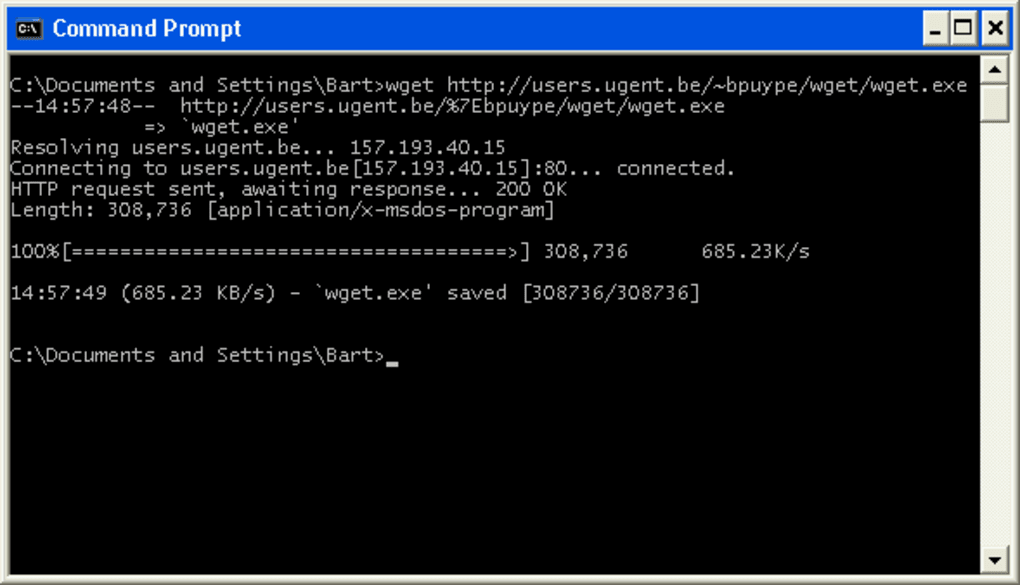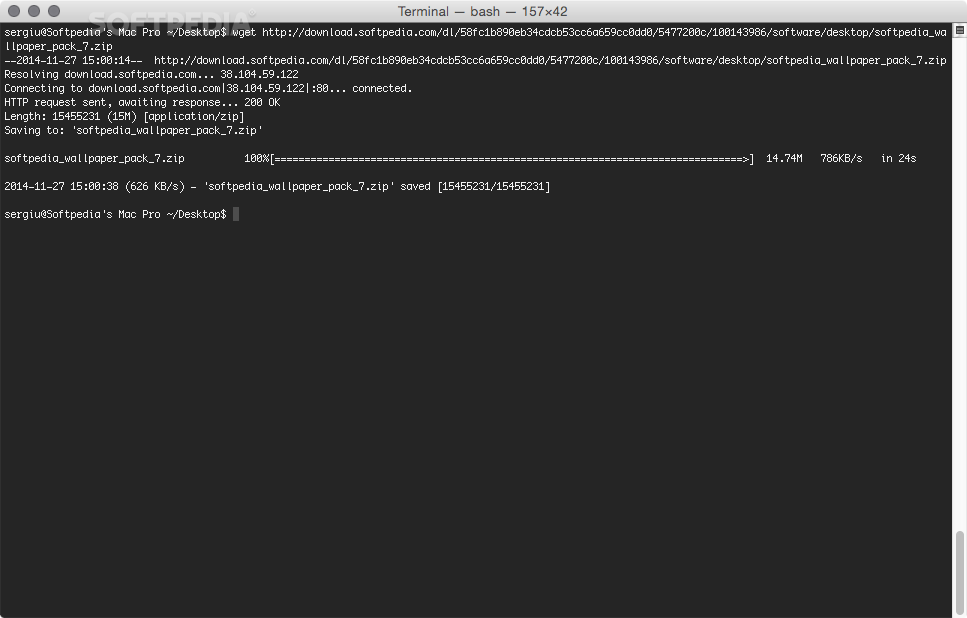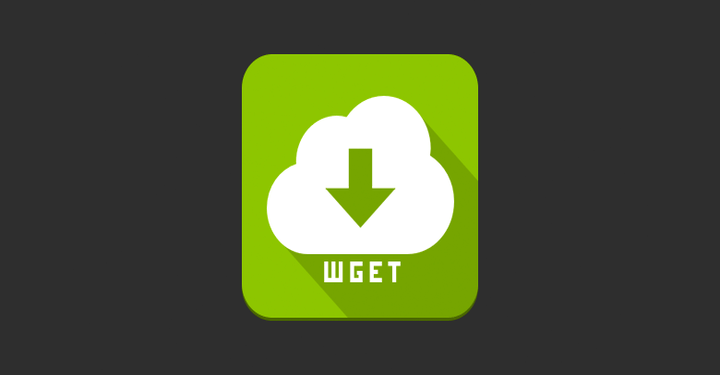GNU Wget
GNU Wget is a free software package for retrieving files using HTTP, HTTPS, FTP and FTPS, the most widely used Internet protocols. It is a non-interactive commandline tool, so it may easily be called from scripts, cron jobs, terminals without X-Windows support, etc.
GNU Wget has many features to make retrieving large files or mirroring entire web or FTP sites easy, including:
- Can resume aborted downloads, using
RESTandRANGE - Can use filename wild cards and recursively mirror directories
- NLS-based message files for many different languages
- Optionally converts absolute links in downloaded documents to relative, so that downloaded documents may link to each other locally
- Runs on most UNIX-like operating systems as well as Microsoft Windows
- Supports HTTP proxies
- Supports HTTP cookies
- Supports persistent HTTP connections
- Unattended / background operation
- Uses local file timestamps to determine whether documents need to be re-downloaded when mirroring
- GNU Wget is distributed under the GNU General Public License.
Downloading GNU Wget
The source code for GNU Wget can be found on the main GNU download server or (better)on a GNU mirror near you.
For more download options, see the FAQ.
Documentation
I recently learned that “wget” can continue getting a partially-downloaded (resume download) file.I am unable to find wget command on Mac OS X. How do I install install wget on Mac OS X (Mountain Lion/ Mavericks / Snow Leopard)? Wget -i file specifies target URLs from an input file. The input file must be an HTML file or be parsed as HTML with the additional flag -force-html; wget -nc/wget -no-clobber will not overwrite files that already exist in the destination. Wget -c/wget -continue will continue downloads of partially downloaded files. #homebrew; #mac; #wget; How to install wget on your Mac #. Ok, so Mac is cool and stuff, but it doesn't come with wget by default, which in my opinion sucks.wget is a very useful tool and is used for downloading installation files among other stuff; it ought to be there on your Mac. Getting wget on Mac OS X is pretty easy, so worry not. Just follow my instructions.
GNU Wget documentation is available online,as are the manuals of other GNU packages.
Additional Information
Currently GNU Wget2 is being developed.
Please help us if you can with testing, docs, organization, development, etc. See you at the Wget2 collaboration site.

Maintainer
GNU Wget is currently being maintainedby Tim Rühsen, Darshit Shah and Giuseppe Scrivano.
The original author of GNU Wget is Hrvoje Nikšić.
Please do not directly contact either of theseindividuals with bug reports, or requests for help with Wget: that iswhat the mailinglist is for; please use it instead.

Donators
We thank the TYPO3 & Magento partner AOE media for donating to the Wget project.
Wget For Mac
macOS Mojave, Sierra, and earlier versions come with the command line utility called ‘curl‘ which is a network transfer tool, it does not come with the popular ‘wget‘, in fact, ‘curl‘ can probably get you by just fine, check man curl at the command line to see its usage.
Otherwise, let’s look at getting ‘wget‘… this can be done in 3 ways.

1 – Install as Point and Click
Download and run the package from Rudix
2 – Compile from Source
To add and install wget to your system you need to download the source files, compile the code and make an install. To compile the code you need a compiler, unfortunately, it doesn’t come with macOS by default you need to install the free Xcode suite from Apple which includes the GCC compiler. This process also works exactly the same in previous macOS and OSX versions.

Get Xcode
Get the latest via Xcode via iTunes.
Download Wget For Mac
Next you need to install the Xcode command line tools, easiest way to do so by running in the Terminal:
Using curl to get wget
Get the latest wget source code from the ftp repository, or using curl from the command line:
Extract it and move into it
Configure and Install it
Wget For Mac Os X
an error may occur on SSL…
wget needs to have some type of SSL support GNUTLS is most probably not available on your OS X system – if so use OpenSSL in the configure as an alternative use so re-run the configure with an SSL flag:

That’s it done, wget will be installed in:
Clean Up
Remove the source code and compressed file:
Test wget
Everything should work out fine – if you need to install more Unix style tools it will be faster and better to install a Package Manager for OSX like Homebrew – it makes installing and maintaining these applications so easy,
3 – Install from HomeBrew
